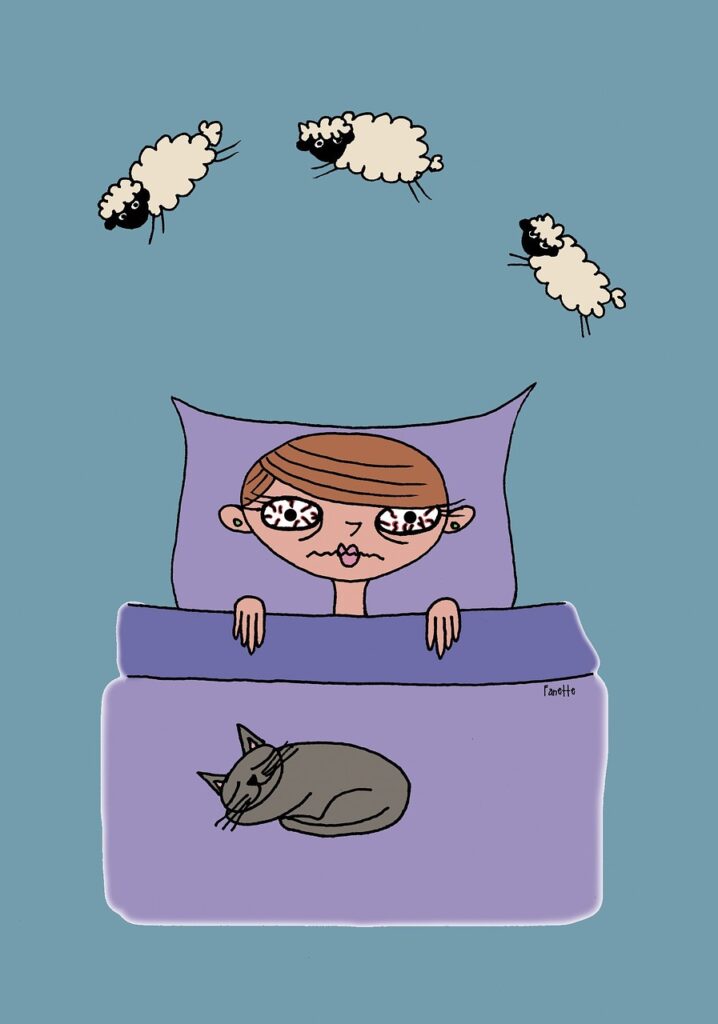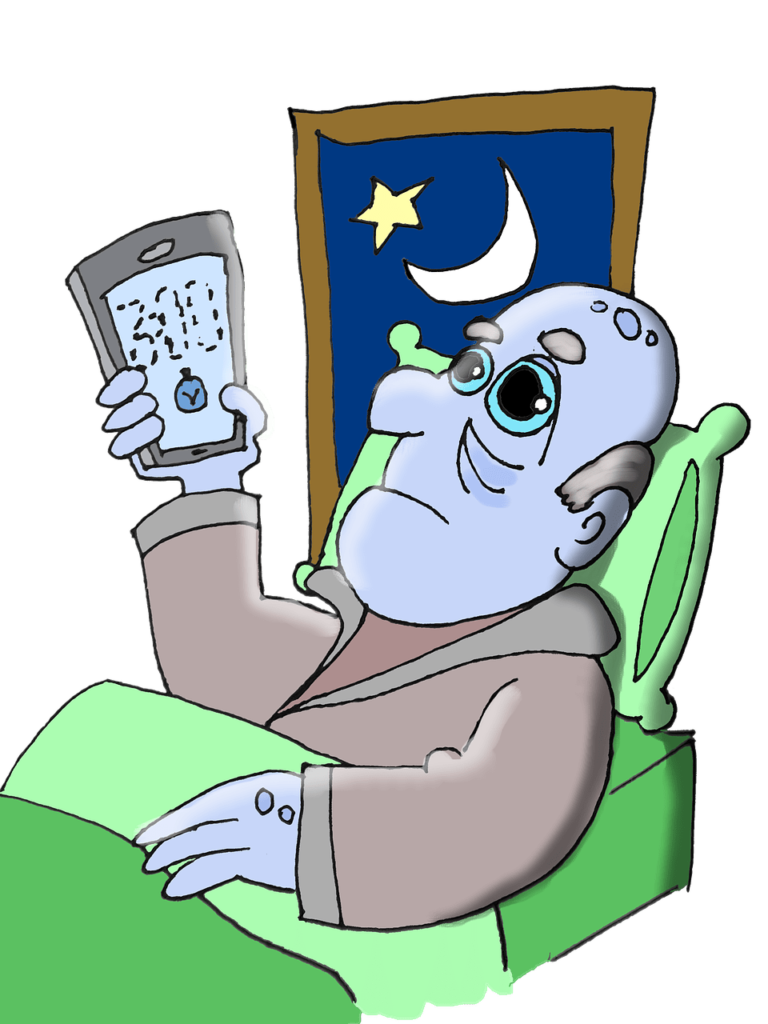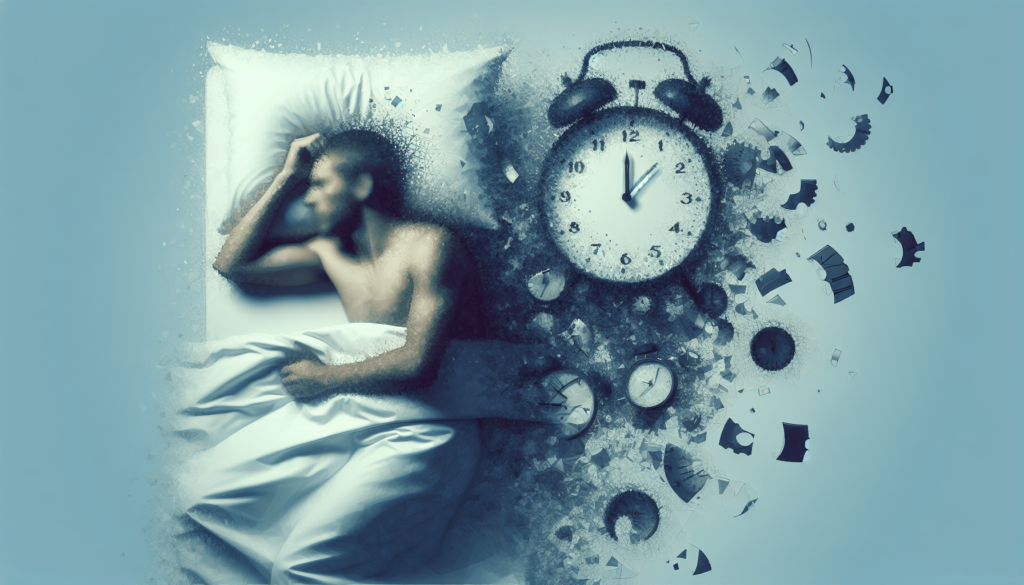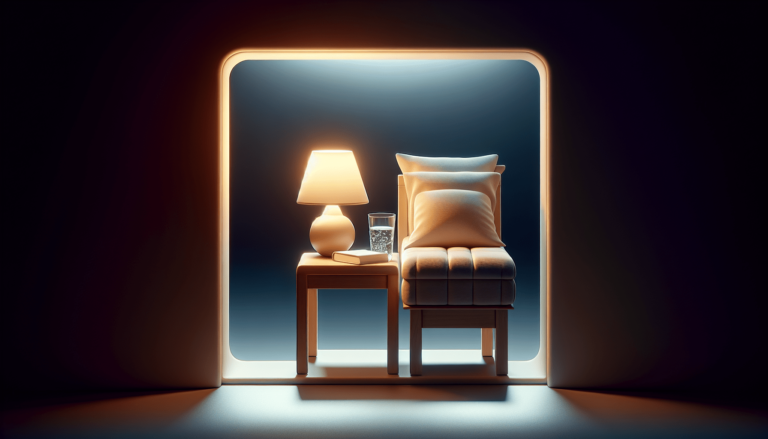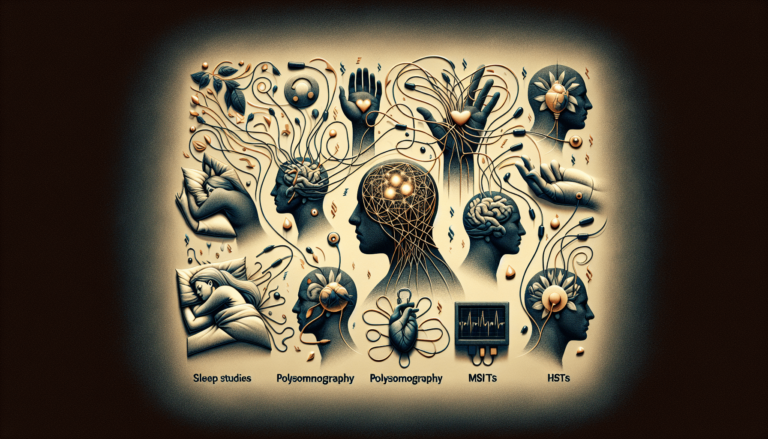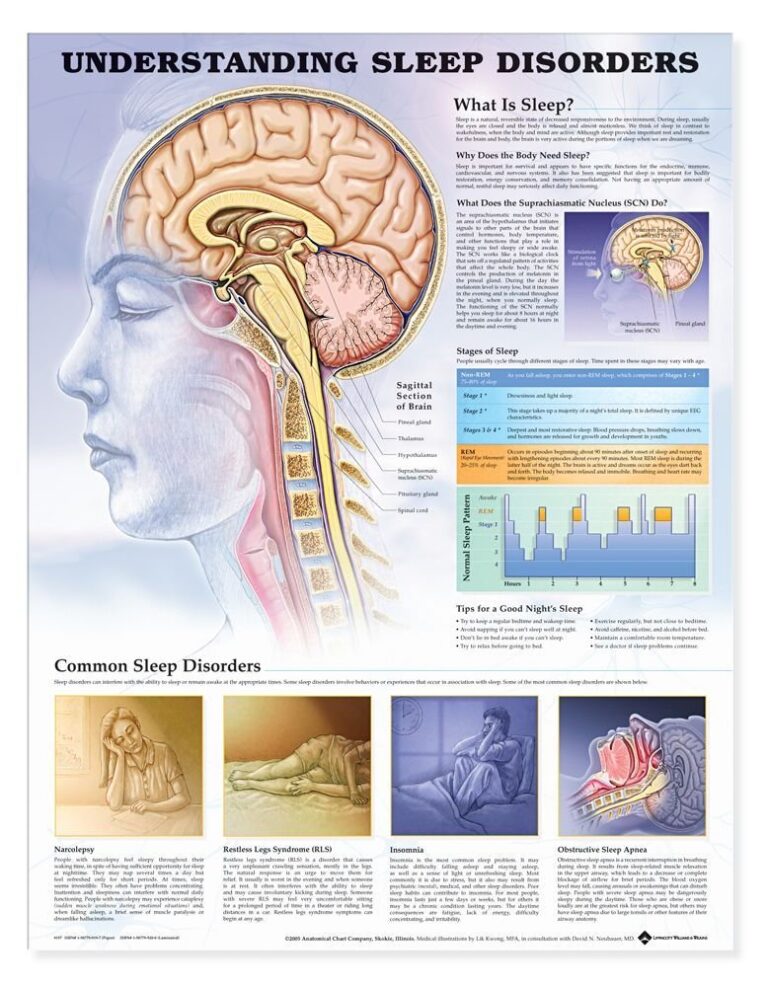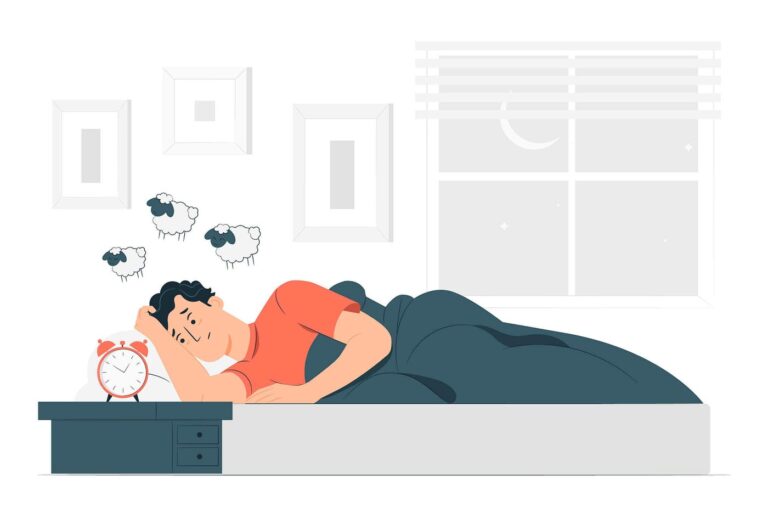Sleep Disorders: Understanding the Problem

Sleep disorders have become a prevalent problem in today’s fast-paced world, impacting both physical and mental health. From insomnia to sleep apnea, these conditions can increase the risk of serious health issues such as heart attacks, strokes, and high blood pressure. At Vector Sleep Clinic, we understand the importance of uninterrupted and restful sleep. That’s why we offer comprehensive care for a variety of sleep disorders. Our licensed and insured facility is dedicated to helping individuals regain control over their sleep and improve their overall well-being. Don’t let sleep disorders disrupt your life any longer – let us help you discover the power of rejuvenating sleep.
Understanding Sleep Disorders
Sleep disorders are conditions that affect your ability to get sufficient and restful sleep. They can cause disruptions in your sleep patterns, resulting in various physical, mental, and emotional health issues. Understanding sleep disorders is crucial as they can have significant impacts on your overall well-being.
Definition of Sleep Disorders
Sleep disorders are characterized by disturbances in the sleep-wake cycle, preventing individuals from getting the necessary amount and quality of sleep needed for optimal functioning. These disorders can manifest in various ways, including difficulty falling asleep, staying asleep, or experiencing abnormal behaviors during sleep.
Types of Sleep Disorders
There are numerous types of sleep disorders, each with its own set of symptoms and underlying causes. Some of the most common sleep disorders include:
-
Insomnia: Insomnia is a sleep disorder characterized by persistent difficulty falling asleep or staying asleep. It can result from stress, anxiety, depression, or certain medical conditions.
-
Sleep Apnea: Sleep apnea is a condition in which breathing repeatedly stops and starts during sleep. It can lead to reduced oxygen levels in the body and fragmented sleep.
-
Restless Leg Syndrome: Restless leg syndrome causes uncomfortable sensations in the legs, often described as aching, tingling, or crawling. These sensations are typically worse at night and can disrupt sleep.
-
Hypopnea: Hypopnea is a sleep disorder marked by shallow or slow breathing during sleep. It can cause brief awakenings and lead to excessive daytime sleepiness.
Causes of Sleep Disorders
Sleep disorders can arise from a variety of factors, including:
-
Stress and Anxiety: Psychological factors such as stress, anxiety, and depression can significantly impact your sleep quality.
-
Medical Conditions: Certain medical conditions like asthma, chronic pain, and hormonal imbalances can disrupt sleep patterns.
-
Lifestyle Habits: Poor sleep hygiene, such as irregular sleep schedules and excessive use of electronic devices before bed, can contribute to sleep disorders.
-
Environmental Factors: Noise, light, temperature, and an uncomfortable sleep environment can all affect your ability to sleep soundly.
Common Sleep Disorders
Understanding the different types of sleep disorders can help you identify the specific challenges you may be facing in achieving restful sleep. Here are some of the most common sleep disorders:
Insomnia
Insomnia is a sleep disorder characterized by difficulty falling asleep, staying asleep, or getting quality sleep. It can be acute, lasting for a short period, or chronic, persisting for months or even years. Insomnia can be caused by various factors, including stress, anxiety, depression, certain medications, or underlying medical conditions.
Sleep Apnea
Sleep apnea is a disorder characterized by repeated pauses in breathing during sleep. These pauses, known as apneas, can last for several seconds to a minute and can occur multiple times throughout the night. Sleep apnea can have serious health consequences, as it disrupts the supply of oxygen to vital organs and increases the risk of heart disease, stroke, and other medical conditions.
Restless Leg Syndrome
Restless leg syndrome is a neurological disorder that causes uncomfortable sensations in the legs, leading to an irresistible urge to move them. These symptoms typically worsen during periods of rest or inactivity, making it difficult to fall asleep or stay asleep. Restless leg syndrome can be a primary condition or secondary to other medical conditions like iron deficiency or kidney disease.
Hypopnea
Hypopnea is characterized by shallow or slow breathing during sleep, often resulting in brief awakenings. It can lead to excessive daytime sleepiness, fatigue, and impaired cognitive function. Hypopnea is often associated with obstructive sleep apnea, where the airway becomes partially or completely blocked during sleep.
This image is property of pixabay.com.
Effects of Sleep Disorders
Sleep disorders can have profound effects on various aspects of your life, including your health, productivity, and relationships.
Impact on Health
Sleep disorders are associated with a wide range of health issues, both physical and mental. Chronic sleep deprivation can weaken the immune system, making you more susceptible to infections and diseases. Lack of sleep also increases the risk of developing conditions like obesity, diabetes, cardiovascular disease, and mental health disorders such as depression and anxiety.
Impact on Productivity
When you don’t get adequate sleep, your cognitive abilities, concentration, and problem-solving skills are significantly impaired. This can make it challenging to perform well at work or school, potentially leading to decreased productivity, errors, and accidents. Sleep disorders can also result in excessive daytime sleepiness, affecting your ability to stay alert and focused throughout the day.
Impact on Relationships
Sleep disorders can strain relationships, particularly when they result in disruptions to your partner’s sleep as well. Frequent snoring, restless leg movements, or sleep apnea episodes can disturb your partner’s sleep, leading to irritability, resentment, and conflicts. Lack of sleep can also impair your mood and emotional well-being, making it more difficult to engage in healthy and meaningful relationships.
The Importance of Sleep Studies
If you suspect that you have a sleep disorder, seeking professional help and undergoing a sleep study can provide valuable insights and guidance for appropriate treatment. Sleep studies, also known as polysomnography, are comprehensive evaluations that monitor your sleep patterns, brain activity, breathing, and physical movements during the night.
Benefits of Sleep Studies
Sleep studies can help diagnose the specific sleep disorder you may be experiencing and provide important information about its severity. They can also detect additional sleep-related conditions that may contribute to your symptoms. By understanding the underlying causes and patterns of your sleep disorder, healthcare professionals can develop personalized treatment plans to address your specific needs.
The Diagnostic Process
During a sleep study, you will spend the night at a sleep laboratory, where sensors and monitors will be used to collect data while you sleep. This data will be analyzed by sleep specialists to evaluate your sleep architecture, breathing patterns, and any abnormalities observed during the study. The diagnostic process may also involve assessing your medical history, conducting a physical examination, and analyzing a sleep diary.
Types of Sleep Studies
There are different types of sleep studies, depending on the specific sleep disorder being evaluated. Some common types include:
-
Polysomnogram: This comprehensive study monitors brain waves, eye movements, muscle activity, heart rate, breathing, and oxygen levels.
-
Multiple Sleep Latency Test (MSLT): The MSLT measures how quickly you fall asleep during daytime nap opportunities, helping to diagnose conditions like narcolepsy.
-
Maintenance of Wakefulness Test (MWT): The MWT assesses your ability to stay awake and alert during specified times, focusing on measuring daytime sleepiness.
At Vector Sleep Clinic, we specialize in conducting thorough sleep studies to accurately diagnose sleep disorders and develop effective treatment plans tailored to your needs.
This image is property of pixabay.com.
Vector Sleep Clinic: Your Sleep Disorder Solution
When it comes to addressing sleep disorders and improving your quality of sleep, Vector Sleep Clinic is dedicated to providing comprehensive care and support. Here’s why you should consider choosing our clinic:
About Vector Sleep Clinic
At Vector Sleep Clinic, we prioritize the importance of sleep in maintaining overall health and well-being. Our team of experienced sleep specialists and healthcare professionals are passionate about helping individuals overcome their sleep disorders and regain restful nights.
Services Offered
Our clinic offers a range of services to cater to the diverse needs of our patients. From diagnostic sleep studies to personalized treatment plans and ongoing support, we ensure a comprehensive approach to addressing sleep disorders. Our team is well-versed in the latest advancements in sleep medicine to provide the most effective and evidence-based treatments available.
Licensed and Insured
Vector Sleep Clinic is licensed and insured, giving you peace of mind knowing that you are receiving care from qualified professionals in a safe and regulated environment. We adhere to strict quality and safety standards to ensure the highest level of care for all our patients.
Reliability and Trustworthiness
When it comes to addressing your sleep concerns, you need a reliable and trustworthy team by your side. At Vector Sleep Clinic, we prioritize open communication, transparent processes, and patient empowerment. We strive to build lasting relationships with our patients built on trust, respect, and mutual understanding.
Diagnosing Sleep Disorders
Accurate diagnosis is crucial for developing effective treatment plans for sleep disorders. At Vector Sleep Clinic, we utilize a comprehensive approach to diagnose sleep disorders, considering various factors and evaluations.
Medical History Evaluation
During your initial consultation, our sleep specialists will conduct a detailed evaluation of your medical history. This includes gathering information about your sleep patterns, any existing medical conditions, medications, and lifestyle habits that may contribute to your sleep disorder.
Physical Examination
A physical examination may be conducted to assess for any physical factors that could be contributing to your sleep disorder. This may involve examining your airway, evaluating your body mass index (BMI), and checking for any signs of underlying medical conditions or hormonal imbalances.
Sleep Diary Analysis
Keeping a sleep diary can provide valuable insights into your sleep patterns and habits. Recording when you go to bed, wake up, and any disruptions or symptoms experienced during the night can help identify patterns and factors that may be affecting your sleep.
Sleep Laboratory Testing
Sleep laboratory testing, such as polysomnography, involves spending a night at our clinic while various sensors and monitors collect data about your sleep. This comprehensive evaluation measures brain waves, eye movements, muscle activity, breathing, and oxygen levels to diagnose specific sleep disorders accurately.
This image is property of pixabay.com.
Treatment Options for Sleep Disorders
Once an accurate diagnosis has been established, treatment options can be explored to address your sleep disorder effectively. At Vector Sleep Clinic, we offer a range of treatment options tailored to meet your individual needs.
Lifestyle Changes
Implementing healthy lifestyle habits can significantly improve sleep quality. Our team will work with you to develop personalized strategies that include establishing a regular sleep schedule, creating a relaxing bedtime routine, maintaining a comfortable sleep environment, and avoiding stimulants close to bedtime.
Medications
In some cases, medications may be prescribed to manage symptoms or underlying conditions contributing to your sleep disorder. Our sleep specialists will carefully assess your situation and provide medication options that are safe and effective for your specific needs.
Continuous Positive Airway Pressure (CPAP) Therapy
CPAP therapy is a common and highly effective treatment for sleep apnea. It involves wearing a mask over your nose or nose and mouth during sleep, which delivers a continuous flow of pressurized air to keep your airways open.
Oral Appliances
Oral appliances can be used for certain sleep disorders like snoring or mild to moderate sleep apnea. These custom-fitted devices are worn in the mouth during sleep to help reposition the jaw and tongue, keeping the airway open.
Surgical Interventions
In some cases, surgical interventions may be necessary to address specific anatomical or physiological issues contributing to your sleep disorder. Our sleep specialists will discuss surgical options if they are deemed necessary for your condition.
Self-Care Tips for Better Sleep
In addition to seeking professional help, there are various self-care practices you can incorporate into your daily routine to promote better sleep. Here are some tips to consider:
Establish a Bedtime Routine
Creating a consistent bedtime routine signals to your body that it’s time to wind down and prepares you for sleep. Engaging in relaxing activities such as reading, taking a warm bath, or practicing yoga can help calm your mind and promote a restful state.
Create a Relaxing Sleep Environment
Make your bedroom a sleep-friendly environment by keeping it cool, dark, and quiet. Invest in a comfortable mattress and pillows that support your body and avoid distractions like electronic devices, excessive noise, or bright lights.
Limit Electronic Device Use Before Bed
The blue light emitted by electronic devices can suppress the production of melatonin, a hormone that regulates sleep. Limit your exposure to screens at least an hour before bed to allow your body to transition into a more relaxed state conducive to sleep.
Avoid Stimulants
Stimulants like caffeine, nicotine, and alcohol can interfere with your sleep quality. Limit your consumption of these substances, especially close to bedtime, to minimize their impact on your ability to fall asleep and stay asleep.
Regular Exercise
Engaging in regular physical activity can promote better sleep by reducing stress, increasing endorphin production, and enhancing overall well-being. However, avoid exercising too close to bedtime, as it may energize you and make it difficult to fall asleep.
Seeking Professional Help for Sleep Disorders
Recognizing the symptoms of sleep disorders and seeking timely professional help is essential for improving your sleep and overall quality of life.
Recognizing the Symptoms
Pay attention to common symptoms such as excessive daytime sleepiness, difficulty falling or staying asleep, loud snoring, gasping or choking during sleep, and frequent leg movements during sleep. If you experience these symptoms regularly and they interfere with your daily functioning, it may be an indication of an underlying sleep disorder.
Importance of Timely Intervention
Ignoring sleep problems can have serious consequences for your health and well-being. By seeking professional help promptly, you can prevent further complications and improve your sleep quality, leading to better overall health and an enhanced quality of life.
Finding a Qualified Sleep Specialist
When seeking professional help, it’s essential to find a qualified sleep specialist who specializes in diagnosing and treating sleep disorders. Look for certifications, credentials, and positive patient reviews to ensure that you are receiving care from a knowledgeable and experienced professional.
Conclusion
Understanding sleep disorders and their potential impacts is the first step towards finding solutions for a good night’s sleep. Sleep disorders can have far-reaching effects on your health, productivity, and relationships, emphasizing the importance of seeking professional help when experiencing sleep-related issues.
At Vector Sleep Clinic, we are committed to providing comprehensive care and personalized solutions for sleep disorders. Our clinic offers a range of services, including diagnostic sleep studies and evidence-based treatment options, to help you overcome your sleep challenges and achieve restful nights. Prioritizing your sleep health can lead to significant improvements in your overall well-being, allowing you to unlock the magic of rejuvenation where dreams meet reality.

